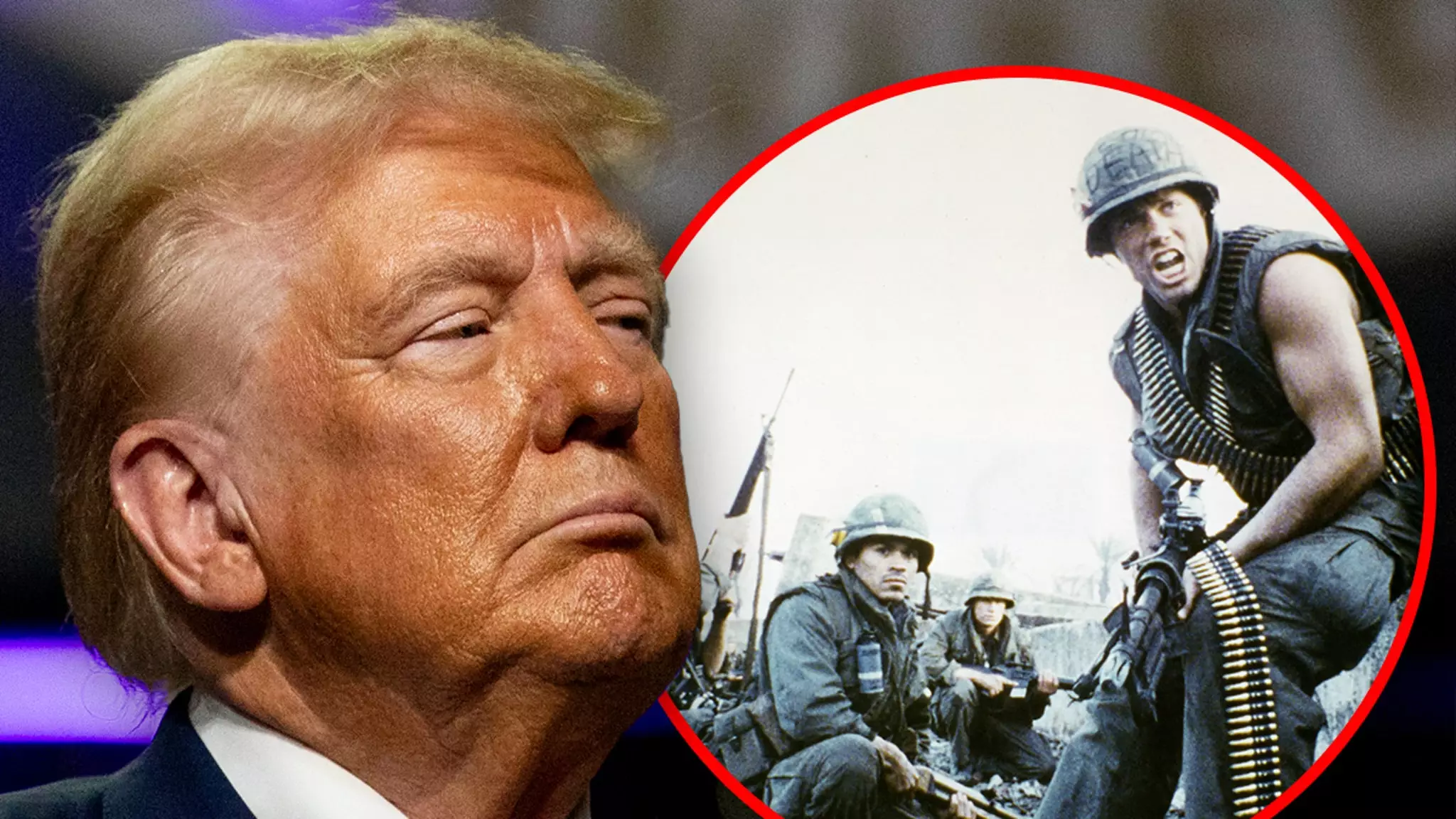In a recent rally in Coachella, California, former President Donald Trump made headlines with his assertive call for a “Full Metal” military. This rhetoric came during a discussion where he targeted current vice president Kamala Harris, framing her approach to the military as “woke.” In an unusually cinematic approach, Trump presented a video juxtaposing images from Stanley Kubrick’s iconic film “Full Metal Jacket” with contemporary military figures who embody what he perceives as an unacceptable shift in military culture. This public display, while resonant with his base, raises significant questions about the implications of his militaristic ideals.
Trump’s demand for a “Full Metal” military suggests a desire to return to traditional values within the armed forces, where he imagines a more rigorous and perhaps combative environment. His assertion implies that under his leadership, the military would shed elements that he associates with contemporary social changes. The contrasting imagery of soldiers in drag and the scenes of harsh military training underscores his rejection of diversity initiatives and inclusivity, which have gained traction in recent years. Trump’s strategy seems designed to tap into a nostalgia for an era characterized by a bravado that values strength and toughness over inclusivity.
Utilizing clips from “Full Metal Jacket” not only strengthens Trump’s argument through familiar cinematic references but also invokes a cultural memory associated with toughness and rigor in military training. However, this choice raises questions about the appropriateness of using a film that ultimately critiques the very dehumanization that Trump seems to romanticize. The film’s narrative progresses towards a tragic end, highlighting the psychological toll of such rigid militarism. By ignoring this critical context, Trump’s portrayal arguably misinterpret the film’s message, showcasing a one-dimensional view of military life.
Trump’s rhetoric suggests a potential regression in military policy should he regain office. The repeal of “Don’t Ask, Don’t Tell” in 2010 marked a pivotal shift towards inclusivity within the armed forces, allowing service members to express their identities without fear of persecution. The current administration’s efforts to implement diversity initiatives further reflect a broader recognition of varied identities within the military community. Trump’s commentary, however, indicates a stark contrast to these developments, suggesting that his administration might revert to policies that eschew progressiveness in favor of a perceived “traditional” military culture.
As Trump continues to project his vision for an idealized military, it is essential to critically evaluate the ramifications of such idealism. The portrayal of a “Full Metal” military disregards the complexities of modern military life, overlooking the advancements made in embracing diversity and inclusivity. Should he return to power, it remains uncertain how he will navigate the intricate landscape of contemporary military service. However, his current rhetoric sets a tone that leans heavily towards a past era, one that may not adequately reflect the values and necessities of today’s armed forces.


Leave a Reply